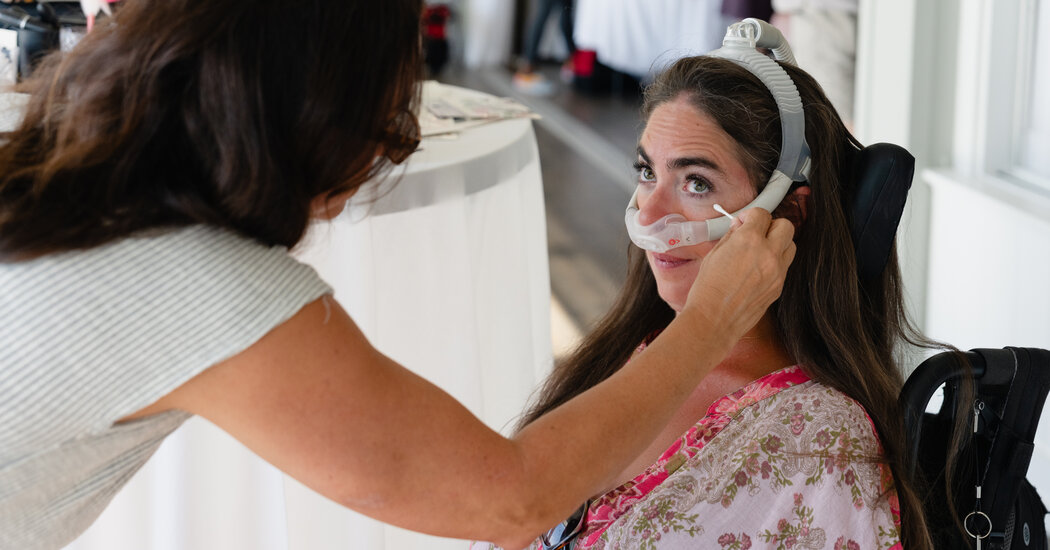Copyright The New York Times

The most stressful part of the trip for Sunny Brous came when she had to part with her wheelchair so that the flight crew could put it in the luggage hold. You just never know what shape it will be in when you get it back, she said. “I tell them, ‘Take the best care of it you can,’” she said. “Those wheels are my legs! Those wheels are my life.” Ms. Brous, 38, who lives in Hico, Texas, was one of dozens of women who converged on the Sea Crest Beach Resort on Cape Cod toward the end of summer for the gathering of a club no one really wanted to be a member of: women diagnosed in their 20s and early 30s with amyotrophic lateral sclerosis, or A.L.S. The terminal neurodegenerative disorder robs them of the ability to talk, walk, use their hands or even breathe. It has long been seen as a disease of older men, who make up a majority of patients. There is no cure. The women traveled with husbands, mothers, sisters and aides, and they did not travel light. Their packing lists included heavy BiPAP machines to help them breathe, formula for their feeding tubes, commodes, portable bidets, myriad chargers, leg braces and canes, pills and pill crushers and bottles of a medication with gold nanoparticles that was still being tested in clinical trials. Thank you for your patience while we verify access. If you are in Reader mode please exit and log into your Times account, or subscribe for all of The Times. Thank you for your patience while we verify access. Already a subscriber? Log in. Want all of The Times? Subscribe.



